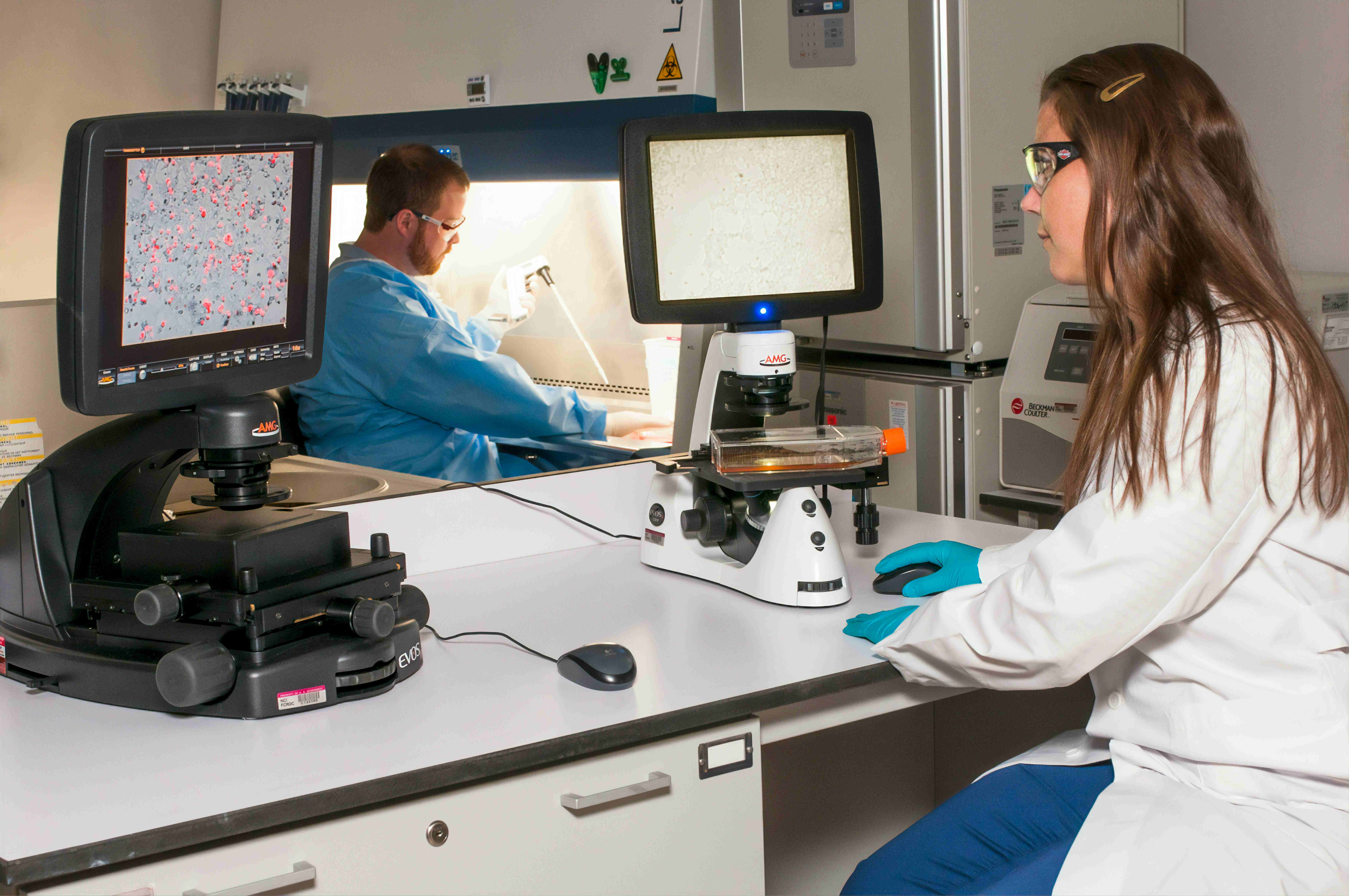
The Top MedTech Recruitment Trends in 2024
24 Jan, 20248 minutesThe MedTech sector is fast-paced, where success is driven by innovation. In an industry that...

The MedTech sector is fast-paced, where success is driven by innovation. In an industry that is constantly evolving, it is crucial for hiring managers to stay educated on the best recruitment strategies that will attract and maintain top talent.
Understanding the MedTech recruitment trends in 2024 means your business will be prepared to tackle the most difficult challenges by implementing new recruitment strategies. Growing demand for innovative technologies and personalised medicine, expert talent, remote working strategies, and diverse talent pools means companies within the MedTech industry are progressing quickly as the market rapidly increases.
In this guide, we will explore the top 5 MedTech recruitment trends in 2024 and how they impact the industry. We will also discuss the importance of adapting recruitment strategies to meet demand.
1. The Rise of Personalised Medicine and AI Technologies
A key trend significantly impacting the MedTech recruitment sector is introducing personalised medicine and innovative technologies such as AI and wearable technologies.
The innovation of new technology and medicines, primarily driven by genomics and proteomics, brings enormous benefits as it revolutionises the medical sector and increases population health. However, benefits often come with setbacks - the rapid implementation of personalised therapies and new technology means businesses are struggling to keep up with the massive demand for healthcare supply and filling talent gaps in MedTech and medical device jobs, with a particular focus on roles such as research scientists, software engineers and cyber security professionals.
AI (Artificial Intelligence)
First, let’s talk about how the introduction of AI is a key factor in driving innovation, transforming the MedTech industry, and how it is fundamentally altering recruitment trends and strategies.
AI-powered medical devices are being implemented globally to improve treatment, diagnostics and healthcare monitorisation. The implementation brings vast benefits, For example, introducing AI-powered technology like X-rays and MRI scans means AI algorithms can detect abnormalities, such as cardiovascular conditions, where diagnostic methods have been proven quicker and more accurate than traditional methods. Introducing such AI devices means diagnostics and treatment are highly cost and time-efficient, freeing up valuable time for healthcare professionals.
Although AI technology has several advantages, it also comes with drawbacks:
- Talent gaps - The MedTech sector is one of the leading industries with substantial skill gaps, particularly in engineering. AI technologies still require human oversight to judge and ensure AI systems are accurate. AI technologies can create several job opportunities, such as software engineers, where staff retention can be increased by providing training and development programmes. It is still essential for recruiters to attract and retain specialist professionals with AI expertise.
- Job Security - Although AI still involves elements of human intervention in manufacturing and approval, unemployment is still a risk for some MedTech jobs. For example, professionals who traditionally carried out tasks such as diagnosing CT scans may face the threat of unemployment as AI begins to create efficient, accurate diagnoses.
- Cybercrime - The increase in digital transformation in MedTech means that the industry is subject to confidential patient data breaches, reputation, and phishing attacks, hindering targeted patient treatment. Recruiters must, therefore, adapt recruitment strategies to source candidates who are educated on cybercrime.
- Bias - One drawback of AI technology is the risk of biased results. For example, if data is not representative of the whole population, accuracy could be diminished if it was tailored particularly towards a specific race or gender.
AI-powered technology trends are also revolutionising recruitment processes, where AI tools can screen and assess suitable candidates, effectively streamlining hiring tasks and becoming a go-to recruitment trend for many MedTech businesses.
Recruiters must adopt recruitment strategies to keep up with the demand for talent and supply that comes with the rapid implementation of AI technology. We will discuss talent attraction and retention strategies later in this guide.
To learn more about how AI technology is revolutionising the MedTech industry, discover our insightful guide - How the AI Revolution is Impacting the MedTech Industry.
Personalised Medicine
Next, let’s explore one of the key trends of MedTech innovation and how it is revolutionising the sector - personalised medicine.
Genomic and proteomic experts primarily drive personalised medicine advancements by analysing disease biomarkers, risk stratification and large-scale genomic and proteomic data to create targeted treatments for genetic disorders. Breakthroughs in AI technology have also massively contributed to positive developments in personalised medicine. AI predicts risk factors for certain diseases, such as cancer, and forecasts the most beneficial treatments.
Rapid implementation of personalised medicine technologies means the global Personalised medicine market size is estimated to reach 5.8 trillion USD by 2030 and is expected to grow at a compound annual growth rate (CAGR) of 11.9% between 2022 and 2030.
Although personalised medicines bring huge advantages, such as reduced time and costs during the lengthy diagnostic processes, the rapid market growth means recruiters struggle to keep up with the demand for top talent needed to implement personalised medicine technology and the demand for healthcare supply. So, hiring managers must adopt recruitment strategies to attract and maintain talent within the field.

2. Talent Attraction and Retention
The Medtech industry is continuously progressing, especially in technological advancements, creating a high demand for professionals in roles focused on personalised medicine and AI engineers. Due to the substantial demand for specific expertise in these career roles, the sector faces significant shortages in staff and talent.
The industry's rapid growth largely influences the demand for MedTech professionals. According to a recent study, the global MedTech market size is expected to reach 814159.2 million USD in 2028, with a CAGR rate of 6.0% between 2022 and 2028. As the market size grows, so does the demand for specialised professionals.
As experts in MedTech careers are highly sought after, the market is highly competitive, and professionals seek only the best career opportunities that offer benefits that align with their career goals and aspirations. This makes it increasingly difficult for recruiters to attract and retain specialised talent.
Below are some examples of recruitment trends your business can use to attract and maintain MedTech talent:
- Partner with educational institutions - To source potential top talent in MedTech, recruiters are beginning to collaborate with academic institutions such as colleges and universities. By doing this, businesses can invest in potential entry-level talent pools by offering internships and training opportunities.
- Invest in career development - Promoting career development opportunities to new and existing professionals can help employees achieve career goals and aspirations whilst optimising expertise within their role, encouraging talent acquisition and retention.
- Offer attractive benefits - Employee benefits such as remote work, a competitive salary, bonuses, and retirement plans will attract and retain expert MedTech professionals in the competitive landscape.
- Create a competitive employer brand - Establishing a stand-out employer brand means delivering your business's unique value proposition, missions, and values to potential clients who align with your organisation. Utilising social media platforms is essential in promoting your brand.
To learn more about the trends used to overcome recruitment challenges, look at our intriguing guide - Ways to Overcome the Challenges of MedTech Recruitment.
3. Greater Focus on Diversity and Inclusion
Recently, increased focus on diversity and inclusion within the workforce has been one of the most important trends that have affected MedTech recruitment.
Recent research suggests that a large amount of diversity still needs to be incorporated into businesses within MedTech. For example, regarding gender, recent studies show that only 20% of MedTech leadership roles are held by women. Studies also uncovered that over 80% of leaders, including senior and executive positions, in MedTech are white, whereas only 11% of leaders are Asian, and 2% of leaders are black. So, there is still tremendous work to be done to drive diversity and inclusion within Medtech careers.
It has been proven that organisations prioritising the importance of diversity and inclusion see huge benefits, such as a massive rise in productivity and engagement within the workforce, as professionals from various backgrounds can offer unique perspectives and solutions regarding MedTech.
Further research suggests that the younger generation is increasingly aware of the significance of a diverse workforce and is more attracted to MedTech jobs that take diversity, equity and inclusion policies seriously. Hiring managers are beginning to adopt different recruitment strategies to source more diverse candidates to acquire unique perspectives, drive innovation, and create an inclusive work environment to attract diverse talent pools.
Diversity and its effect on AI technology processes are also key areas. As we mentioned earlier in the guide, AI data needs to be representative of the whole population, ensuring different genders and races are accounted for to reduce the risk of biased data and inaccurate results significantly. So, it is also essential for hiring managers to alter recruitment strategies to source diverse individuals to ensure AI-powered diagnostics and targeted treatments are reliable.
4. Hybrid Workforce
Following the COVID-19 pandemic, telemedicine technology has meant that a hybrid workforce is an absolute necessity in Medtech careers, as more patients are beginning to access healthcare services remotely, avoiding the need to visit a healthcare facility.
Telemedicine devices, such as remote patient monitoring and virtual consultations, involve remotely monitoring patients' signs of risks and health data. Healthcare professionals can track their health status and discuss results, avoiding needing in-person visits.
Remote patient monitorisation means MedTech recruiters must use different recruitment strategies to source professionals proficient in telemedicine technology who are adaptable and able to provide the same quality of care through virtual consultation, hybrid working arrangements, and different patient care settings.
Flexible working arrangements for professionals, such as software engineers, have become increasingly normalised. Many professionals in MedTech jobs view remote working as a non-negotiable requirement, meaning recruiters are adapting to this demand to avoid losing competitive talent within the field.
How is Inflation Impacting MedTech Recruitment Trends?
The MedTech industry is currently battling with the challenges brought about by inflation. The surge in costs related to labour, materials, and energy is placing substantial pressure on profit margins. Escalating inflation means supply chain disruptions drive companies to reassess pricing strategies and contemplate selling at reduced margins.
Many companies are considering implementing price increases to counteract the adverse effects of inflation and balance operational income losses caused by rising costs. Companies are urged to adopt a hybrid approach tailored to individual circumstances within the MedTech sector. However, many firms face the challenge of potential margin erosion as passing on increased costs to customers becomes increasingly difficult.
Despite these formidable challenges, the industry is actively navigating the complexities of inflation, seeking innovative solutions and strategic approaches to safeguard its operations and financial performance.
In times of economic uncertainty, businesses must limit expenses within MedTech recruitment. Organisations must alter recruitment trends to save time and money while getting the desired results.
Strategic Medtech recruitment trends used to tackle inflation can include:
- Using AI technology to streamline recruitment processes to reduce time and costs
- Offering competitive salaries to attract and retain talent during economic uncertainty
- Welcoming the idea of employee referrals to obtain expertise without having to spend money on external recruitment resources
Wrapping up MedTech Recruitment Trends of 2024
The 2024 MedTech recruitment industry is marked by various trends that reflect the industry's fast-paced nature. The industry, driven by innovation, demands constant adaptation from hiring managers to attract and retain top talent. The top five trends include the rise of personalised medicine and AI technologies, a greater focus on diversity and inclusion, the emergence of a hybrid workforce post-COVID-19, and the challenges posed by talent attraction and retention.
The MedTech industry is at the forefront of technological advancements, demanding agile and strategic recruitment practices. Adapting to personalised medicine, AI, diversity, hybrid work models, and talent demands is crucial for staying competitive and resilient in this dynamic sector.
Companies are adopting strategic approaches to counteract the impact of inflation on MedTech recruitment trends. Leveraging AI technology in recruitment processes, offering competitive salaries, and embracing employee referrals are proven methods to streamline hiring tasks and address the challenges posed by rising costs and supply chain disruptions.
Driving Success in MedTech Recruitment
At Hartmann Young, we have specialised MedTech recruitment experts who source tailor-made talent solutions for clients and professionals to help them achieve their business goals and drive success in the competitive industry.
Whether you are a client looking for outstanding recruitment solutions or a professional searching for Medtech jobs, contact us today to discuss your requirements, no matter how complex.


